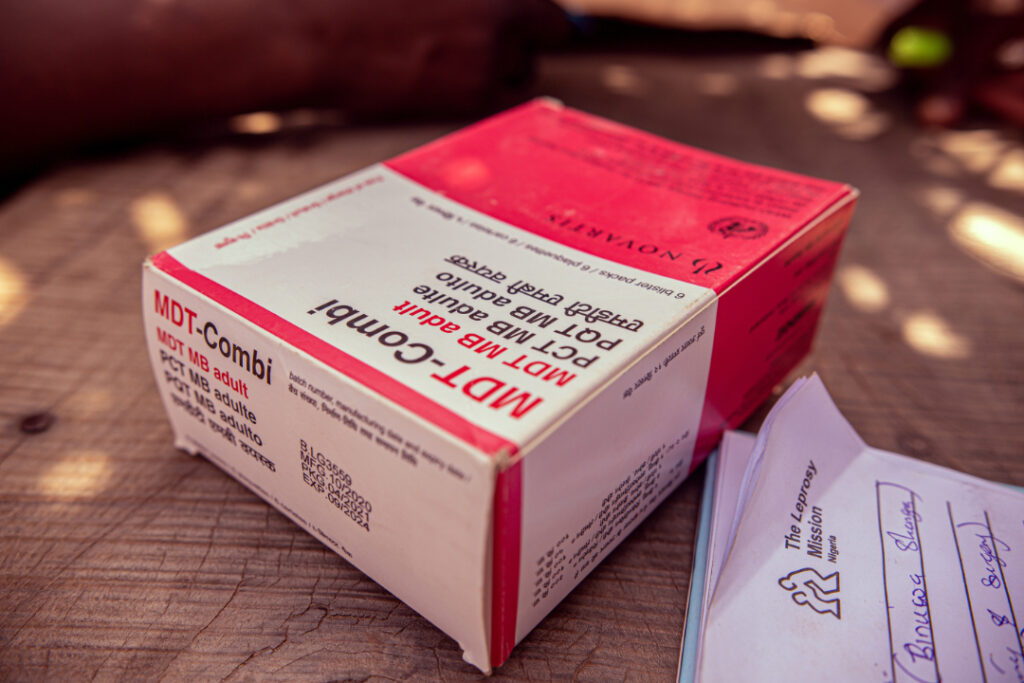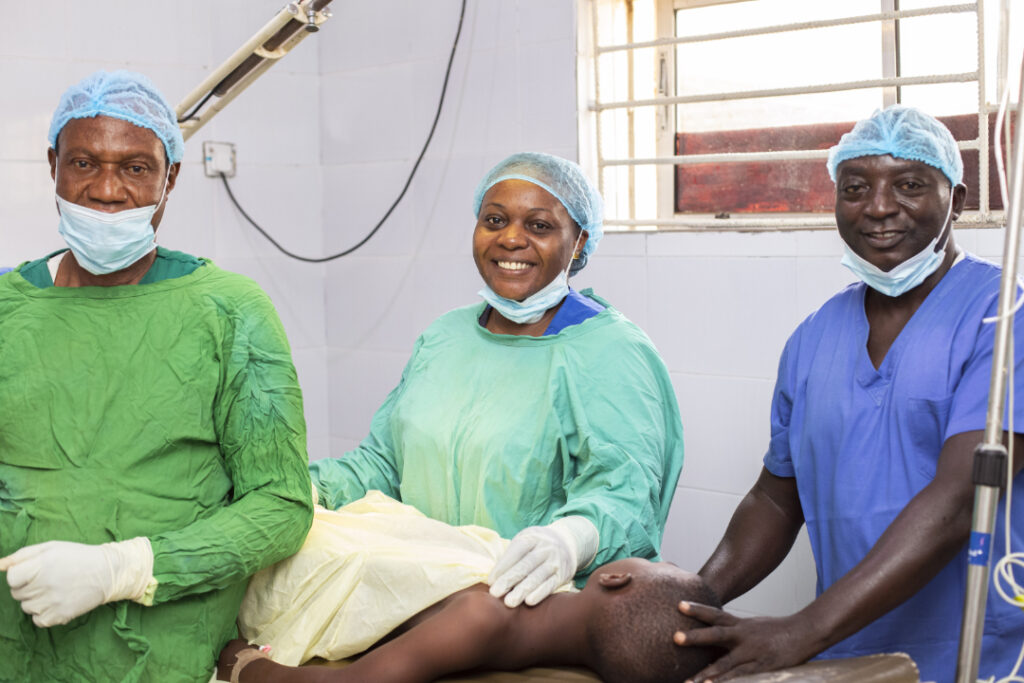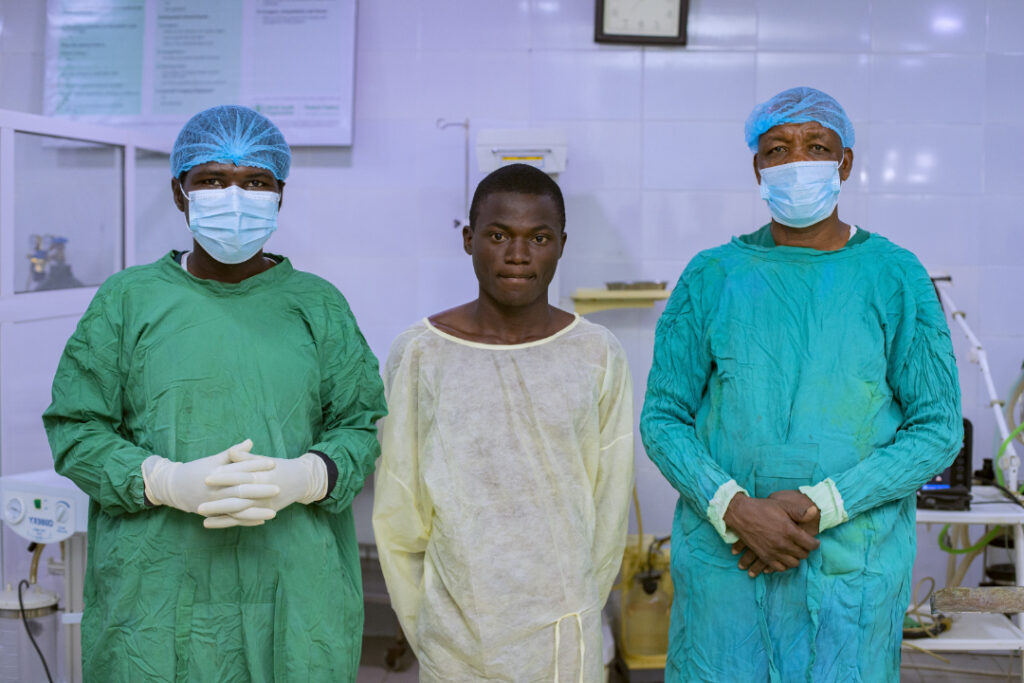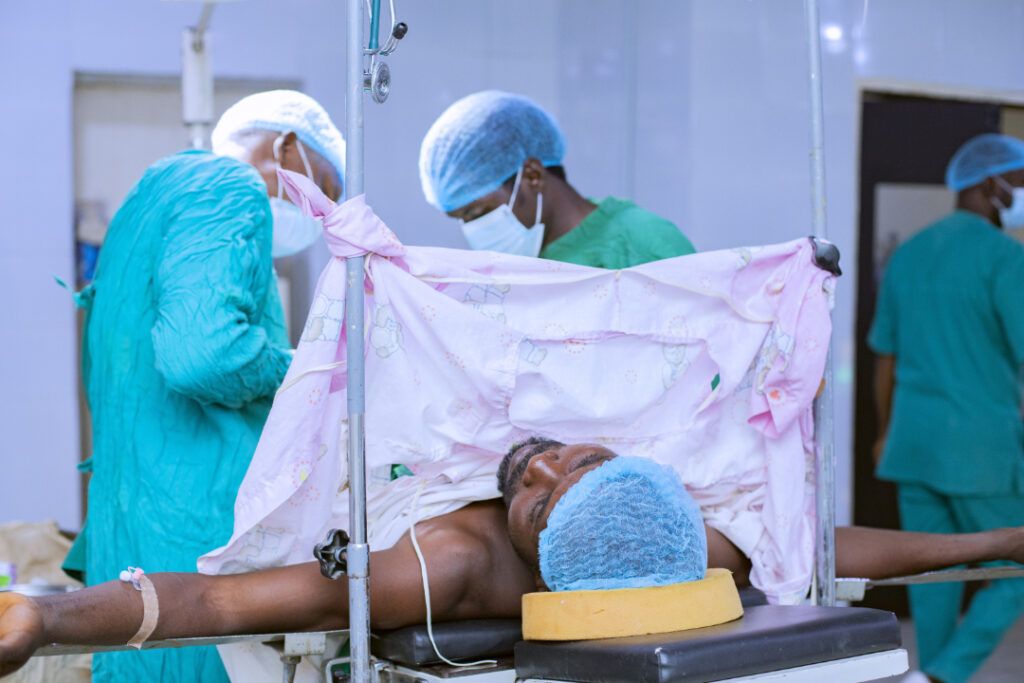Addressing the Shortage of Multi-Drug Therapy for Leprosy
2024 World Leprosy Day: A Stark Reality Check
World Leprosy Day, observed annually on January 26th, is a time for reflection and progress in the fight against one of humanity’s oldest diseases. While many around the world celebrated advances in leprosy treatment and awareness, the reality in Nigeria was far from hopeful. At The Leprosy Mission Nigeria (TLMN), there was little cause for celebration, as the country faced a severe shortage of multi-drug therapy (MDT)—the essential treatment for leprosy.

A Year Without Essential Treatment
Since early 2024, Nigeria has struggled with a complete stockout of MDT due to bureaucratic delays in supply and new domestic regulations on imported medicines. A key component of the drug, produced in India, was held up, leaving thousands without access to life-saving treatment. This delay allowed leprosy to spread unchecked for an entire year, worsening the burden on already vulnerable individuals. Many who had been diagnosed before 2024 and had begun treatment were forced to stop mid-course, leading to severe complications, adverse drug reactions, and relapses.

A Call to Action
In December 2024, Mr. Peter Iokighir, President of IDEA, addressed the media in a press conference, emphasizing the urgency of the crisis:
“The plight of leprosy patients cannot be ignored. These delays are avoidable, and their consequences are preventable. We urge all stakeholders—government officials, regulatory agencies, and the international community—to act swiftly and decisively.”

TLMN intensified its advocacy efforts, engaging with the National Tuberculosis, Buruli Ulcer, and Leprosy Control Program (NTBLCP) to push for a swift resolution. Expressing the gravity of the situation, TLMN’s National Director, Sunday Udoh, remarked:
“This is the first time we are witnessing such an alarming and painful situation, where some of the poorest and most vulnerable individuals are unable to access a medication that can save their lives.”
Progress and the Road Ahead
Following relentless efforts by civil society organizations, advocacy groups, and the Ministry of Health, there is now renewed hope. The Ministry has finally received a new shipment of anti-leprosy medication and has begun distribution across the country. However, while this is a critical step forward, the need for swift and efficient distribution remains paramount.
TLMN urges all relevant authorities to ensure these medications reach those in need without further delay. The suffering endured over the past year should never be repeated. Access to MDT is not just a necessity—it is a fundamental right for all persons affected by leprosy in Nigeria.
We remain committed to this cause and will continue to advocate for a sustainable and uninterrupted supply of leprosy medication.
For further updates, please stay connected with us.
Surgical Interventions for Hydrocele in Kwali
Neglected Tropical Diseases (NTDs) continue to pose significant health challenges in rural communities across Nigeria. Among these, lymphatic filariasis-related conditions such as hydrocele and the canal of Nuck cause severe physical discomfort and social stigma. The ProSkin Project, spearheaded by The Leprosy Mission Nigeria (TLMN), is committed to reducing the burden of skin NTDs through patient-centred care, early diagnosis, and specialized treatment.


As part of this initiative, eight hydrocele surgeries were successfully performed at Kwali General Hospital, FCT-Abuja, on January 25, 2024. This marks a significant step toward achieving the project’s target of 135 surgeries over the next four years. These life-changing interventions alleviate physical suffering, restore dignity, and improve the quality of life for affected individuals.
A Holistic Approach to Patient Care
Recognizing the psychological impact of these conditions, patients participated in mental health sessions led by trained healthcare workers to address emotional concerns and prepare them for surgery. Pre-surgery assessments, including laboratory tests and consultations with specialists, ensured that all candidates were fit for the procedure. Additionally, patient education sessions provided essential information on surgical expectations and post-operative care, equipping them with the knowledge needed for a smooth recovery.

Partnerships Driving Success
This initiative was made possible through the collaborative efforts of various stakeholders. Community leaders played a crucial role in mobilizing individuals for screening and encouraging participation in the program. The Kwali General Hospital provided essential medical facilities, surgical teams, and post-operative care, ensuring the safety and well-being of all patients. Healthcare workers conducted pre-surgery tests, and provided comprehensive patient support. The Leprosy Mission Nigeria (TLMN) coordinated logistics, advocacy, and patient follow-up care, ensuring that every aspect of the intervention was effectively managed. Through these strong partnerships, the initiative was able to deliver meaningful and life-changing healthcare services to those in need. The completion of eight hydrocele surgeries significantly improved the health and well-being of affected individuals. Mental health support provided to patients helped them cope with the emotional and social challenges associated with their conditions, ensuring a more holistic approach to their recovery. Access to specialized care was expanded, offering timely diagnosis, treatment, and surgical interventions to underserved populations. Additionally, the initiative strengthened community engagement, raising awareness about lymphatic filariasis and encouraging early medical intervention. These achievements highlight the effectiveness of the ProSkin Project in addressing critical healthcare needs.

Despite the success of the initiative, several challenges were encountered. Some patients were deemed ineligible for surgery due to underlying health conditions, preventing them from receiving the necessary intervention. The rising cost of medications posed financial difficulties, impacting the availability of essential drugs for both pre- and post-surgery care. Resistance to surgery among certain individuals, who preferred traditional remedies, underscored the need for continued awareness and education efforts. Additionally, limited access to healthcare facilities in remote areas created logistical difficulties for some patients, delaying their treatment.
For more updates on our initiatives, stay connected with us.
The Leprosy Mission Nigeria

